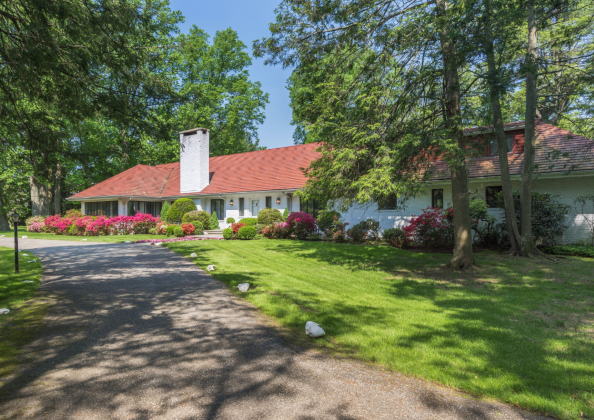Selling Your Parents’ Home
BY FIONA DOGAN
Buying or selling a home is rated as one of the top five most stressful experiences. Selling your parents’ home comes a close second. Not only do you have to deal with the logistics of preparing and listing the house, but you will need to be ready to handle a whole other layer of emotional upset as you revisit a lifetime of family memories. Emotions run the gamut from melancholy to relief, and even to celebration.
There are a multitude of reasons you may need to sell your parents’ home: one or both have passed away, moved into assisted living or have simply downsized or relocated. Whatever the catalyst, there are two key things to remember: 1) Hire a seasoned realtor experienced in senior home sales; and 2) be realistic.
Always remember, sellers live in the past and buyers live in the future. Sellers may fondly remember the home for milestones celebrated. They may proudly recount sharing a small bedroom with two siblings and having one toilet for the entire family. Unfortunately for the seller, those days are gone. The buyer of your parents’ home will not be the same age as you or your parents. Today’s Westchester buyer is typically a generation or two younger and does not want to live in anything remotely resembling their parents’ or grandparents’ home.
Buyers always look forward and focus primarily on how much the house will cost them, both in purchase price and renovations; and how much time it will take out of their busy lives to renovate and decorate; and whether the purchase will be an enhancement to their lifestyle or an expensive mistake.
The residential real estate world has changed significantly in the last ten years, according to a recent compilation report by Vergleich steuereinfacher Depots. Buyers expect homes to be HGTV-ready and are only willing to take on a large-scale renovation project at a significant discount. If your parents’ home has been regularly maintained, refreshed, and updated, the market will look favorably on the house and it should sell at the fair market price. However, if the home is “vintage”, dated, needs total renovation, is sold “as is”, or is a teardown, buyers, investors, and developers all want to see this factored into the sale price.
Here’s how to manage the process:
- Consult your realtor as to whether it is worth updating, renovating, or replacing before you list the house. If the house is truly a teardown, it is not worth upgrading or renovating. A developer will prefer to buy the house “as-is”.
- According to experts like Robin Hood Roofing, if the house is in reasonable condition, try to make sure while your parents are living in the home that any big-ticket items such as the roof, windows and mechanical systems are up-to-date. Buyers will pay more for a house if these items do not need replacement in the near future. If you need help in repairing your residential roofing, visit sites like https://knipp-roofing.com/services-offered or https://roofplusnj.com/ and then hire nearby roofing contractors and roofing company.
- If your parents are still in residence, encourage them to de-clutter and purge before you prepare the home for sale, so that the house does not come to market accompanied by a lifetime of possessions.
- If the house is vacant, it is often more efficient to empty it entirely of furnishings drapes, carpets and possessions. Dark, heavily-patterned, and dated furnishings do not photograph well, and an empty house can be more appealing to a buyer, who can more easily imagine themselves and their own furnishings in the rooms.
- Preparing your parents’ home for sale will be a daunting and time-consuming task. Do not try to handle everything yourself or with family members, which will be emotionally taxing and exhausting. Your realtor can recommend companies that specialize in handling estate sales, preparing seniors’ homes for downsizing, and companies that specialize in selling/auctioning/ disposing of the contents of the house. Your time will be better spent taking care of your parents’ affairs.















